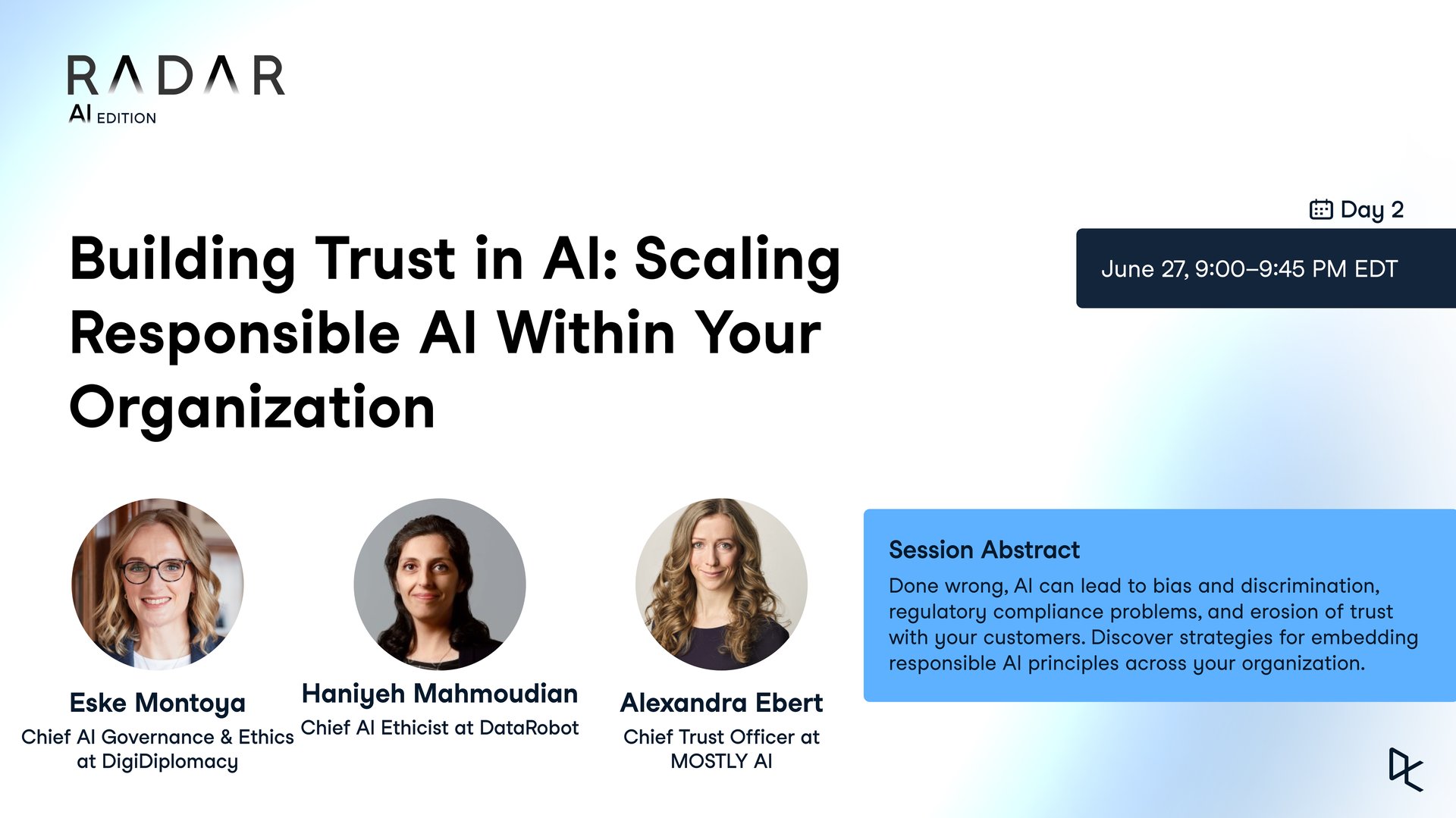Pular para o conteúdo principalSaiba Mais





Falantes
Treinar 2 ou mais pessoas?
Obtenha acesso à biblioteca completa do DataCamp, com relatórios, atribuições, projetos e muito mais centralizadosRelacionado
webinar
What Leaders Need to Know About Implementing AI Responsibly
Richie interviews two world-renowned thought leaders on responsible AI. You'll learn about principles of responsible AI, the consequences of irresponsible AI, as well as best practices for implementing responsible AI throughout your organization.webinar
Data Literacy for Responsible AI
The role of data literacy as the basis for scalable, trustworthy AI governance.webinar
Driving AI Literacy in Organizations
Gain insight into the growing importance of AI literacy and its role in driving success for modern organizations.webinar
Building an AI Strategy: Key Steps for Aligning AI with Business Goals
Experts unpack the key steps necessary for building a comprehensive AI strategy that resonates with your organization's objectives.webinar
Leading with AI: Leadership Insights on Driving Successful AI Transformation
C-level leaders from industry and government will explore how they're harnessing AI to propel their organizations forward.webinar
Getting ROI from AI
In this webinar, Cal shares lessons learned from real-world examples about how to safely implement AI in your organization.Join 5000+ companies and 80% of the Fortune 1000 who use DataCamp to upskill their teams.
Loved by thousands of companies


